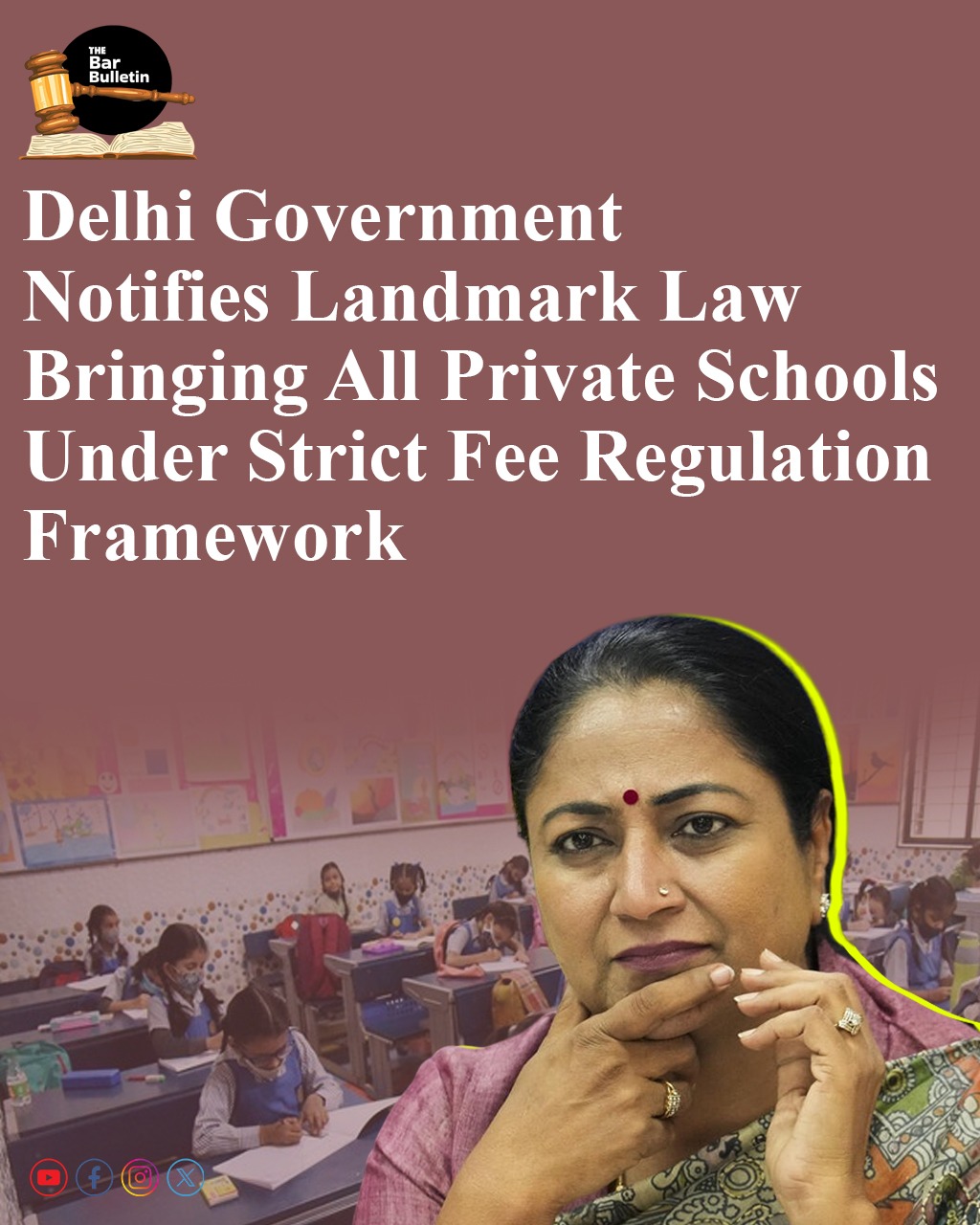The Delhi government has notified the Delhi School Education (Transparency in Fixation and Regulation of Fees) Act, 2025, ushering in a new era of parent-centred transparency and accountability for all private unaided schools operating in the National Capital Territory of Delhi. The law, which was passed during the Monsoon Session of the Delhi Assembly, has now extended fee regulation to over 1,700 private schools, thereby closing a decades-old loophole that previously covered only about 300 institutions under the 1973 rules.
In its statement of objects and reasons, the government underlined that the law is designed to curb the commercialisation and profiteering in education, promote financial transparency through regular audits and disclosures, and safeguard the interests of parents and students. The law draws on models successfully used in states like Maharashtra and Rajasthan, as well as guiding principles from national policy and Supreme Court jurisprudence. Deliberations included extensive consultations with parents and education experts, reflecting a consensus to regulate fee structures uniformly across all private schools, including minority institutions and those not allotted government land.
Education Minister Ashish Sood, speaking at a Parents’ Town Hall in Janakpuri on Friday, emphasised that the new law empowers parents to participate in the fixation and approval of fee hikes, with school-level fee regulation committees comprising elected parent, teacher, management, and government representatives. For the first time, parent groups have meaningful veto power on proposed fee hikes, ensuring that decisions reflect broader community consensus rather than unilateral management decisions.
Key provisions of the law include a transparent, multi-layered process for fee approval. Schools must place all fee proposals before school-level committees by July 15, and district-level committees by July 30, with final decisions required by September. If consensus is not reached within 45 days, the matter moves automatically to a district appellate committee for resolution. Decisions must be publicly displayed on notice boards and school websites.
Schools found to levy arbitrary fee increases without government approval will face stiff penalties, including fines ranging from ₹1 lakh to ₹10 lakh. The law further mandates that any excess charges collected in violation of approved fee structures must be refunded to parents within 20 working days, failing which double and triple penalties will be imposed on the school. The Director of Education now holds powers comparable to a sub-divisional magistrate, ensuring swift enforcement and redress for affected families.
Committees at multiple levels and grievance mechanisms provide protection for parents, including provisions for appeals and review. The Act prohibits schools from using coercive tactics such as withholding results, removing students from rolls, or public humiliation to recover fees, and allows for penal action in such circumstances.
The government asserts that all necessary infrastructure for the implementation of the Act, including independent regulation committees, will be funded without additional burden on the Consolidated Fund of India.
Read More Click here



